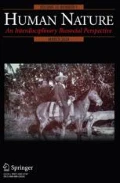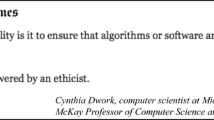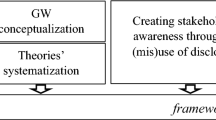Abstract
People’s judgments about property shape how they relate to other people with respect to resources. Property law cases can provide a valuable window into ownership judgments because disputants often use conflicting rules for ownership, offering opportunities to distinguish these basic rules. Here we report a series of ten studies investigating people’s judgments about classic property law cases dealing with found objects. The cases address a range of issues, including the relativity of ownership, finder versus landowner rights, object location, objects below- versus above-ground, mislaid versus lost objects, contracts between landowners and finders, and the distinction between public and private space. The results show nuanced patterns in ownership judgments that are not well-explained by previous psychological theories. Also, people’s judgments often conflict with court decisions and legal principles. These empirical patterns can be used to generate and test novel hypotheses about the intuitive logic of ownership.
Similar content being viewed by others
References
Aigler, R. W. (1923). Right of finders. Michigan Law Review, 21, 664–682.
Alchian, A., & Demsetz, H. (1973). The property right paradigm. Journal of Economic History, 33, 16–27.
Arnott, G., & Elwood, R. W. (2009). Assessment of fighting ability in animal contents. Animal Behaviour, 77, 991–1004.
Blake, P. R., & Harris, P. L. (2009). Children’s understanding of ownership transfers. Cognitive Development, 24, 133–145.
Brosnan, S. F. (2011). Property in nonhuman primates. New Directions for Child and Adolescent Development, 132, 9–22.
Buhrmester, M., Kwang, T., & Gosling, S. D. (2011). Amazon’s Mechanical Turk: a new source of inexpensive, yet high-quality, data? Perspectives on Psychological Science, 6, 3–5.
Cohen, E. R. (1970). The finders cases revisited. Texas Law Review, 48, 1001–1027.
Cribbet, J. H., Johnson, C. W., Findley, R. W., Smith, E. E., & Dzienkowski, J. S. (2007). Property cases and materials (9th ed.). New York: Foundation Press.
Cunningham, S. J., Turk, D. J., Macdonald, L. M., & Macrae, C. N. (2008). Yours or mine? Ownership and memory. Consciousness and Cognition, 17, 312–318.
Cunningham, S. J., Conway, M. A., Turk, D. J., & van den Bos, M. (2010). Mine to remember: the impact of ownership on recollective experience. The Quarterly Journal of Experimental Psychology, 63, 1065–1071.
Darley, J. M. (2001). Citizens’ sense of justice and the legal system. Current Directions in Psychological Science, 10, 10–13.
De Soto, H. (2000). The mystery of capital: Why capitalism triumphs in the West and fails everywhere else. New York: Basic Books.
Demsetz, H. (1967). Toward a theory of property rights. American Economic Review, 57, 347–359.
DeScioli, P., & Kurzban, R. (2009a). Mysteries of morality. Cognition, 112, 281–299.
DeScioli, P., & Kurzban, R. (2009b). The alliance hypothesis for human friendship. PLoS One, 4, e5802.
DeScioli, P., & Kurzban, R. (2013). A solution to the mysteries of morality. Psychological Bulletin, 139, 477–496.
DeScioli, P., & Wilson, B. J. (2011). The territorial foundations of human property. Evolution and Human Behavior, 32, 297–304.
Dukeminier, J., Krier, J., Alexander, G., & Schill, M. (2006). Property (6th ed.). New York: Aspen Publishers.
Ellickson, R. C. (1991). Order without law: How neighbors settle disputes. Cambridge: Harvard University Press.
Friedman, O. (2008). First possession: an assumption guiding inferences about who owns what. Psychonomic Bulletin and Review, 15, 290–295.
Friedman, O. (2010). Necessary for possession: how people reason about the acquisition of ownership. Personality and Social Psychology Bulletin, 36, 1161–1169.
Friedman, O., & Neary, K. R. (2008). Determining who owns what: do children infer ownership from first possession? Cognition, 107, 829–849.
Gintis, H. (2007). The evolution of private property. Journal of Economic Behavior and Organization, 64, 1–16.
Goodhart, A. L. (1928). Three cases on possession. The Cambridge Law Journal, 3, 195–208.
Haidt, J. (2001). The emotional dog and its rational tail: a social intuitionist approach to moral judgment. Psychological Review, 108, 814–834.
Hobbes, T. (1651). Leviathan. Retrieved from Project Gutenberg. http://www.gutenberg.org/dirs/3/2/0/3207/3207.txt.
Hook, J. (1993). Judgment about the right to property from preschool to adulthood. Law and Human Behavior, 17, 135–146.
Hume, D. (1740). A treatise of human nature. Retrieved from Project Gutenberg. http://www.gutenberg.org/dirs/4/7/0/4705/4705.txt.
Jones, O. D., & Brosnan, S. F. (2008). Law, biology, and property: a new theory of the endowment effect. William and Mary Law Review, 49, 1935–1990.
Jones, O. D., & Goldsmith, T. H. (2005). Law and behavioral biology. Columbia Law Review, 105, 405–502.
Kahneman, D., Knetsch, J. L., & Thaler, R. H. (1991). Anomalies: the endowment effect, loss aversion, and status quo bias. Journal of Economic Perspectives, 5, 193–206.
Kanngiesser, P., Gjersoe, N., & Hood, B. M. (2010). The effect of creative labor on property-ownership transfer by preschool children and adults. Psychological Science, 21, 1236–1241.
Kim, S., & Kalish, C. W. (2009). Children’s ascriptions of property rights with changes of ownership. Cognitive Development, 24, 322–336.
Kimbrough, E. O. (2011). Learning to respect property by refashioning theft into trade. Experimental Economics, 14, 84–109.
Kimbrough, E. O., Smith, V. L., & Wilson, B. J. (2008). Historical property rights, sociality and the emergence of impersonal exchange in long-distance trade. American Economic Review, 98, 109–1039.
Kimbrough, E. O., Smith, V. L., & Wilson, B. J. (2010). Exchange, theft, and the social formation of property. Journal of Economic Behavior and Organization, 74, 206–229.
Kokko, H., Lopez-Sepulcre, A., & Morrell, L. J. (2006). From hawks and doves to self-consistent games of territorial behavior. The American Naturalist, 167, 901–912.
Krier, J. E. (2009). Evolutionary theory and the origin of property rights. Cornell Law Review, 95, 139–160.
Locke, J. (1689). Two treatises of government. Retrieved from Project Gutenberg. http://www.gutenberg.org/cache/epub/7370/pg7370.txt.
Maynard Smith, J. (1982). Evolution and the theory of games. Cambridge: Cambridge University Press.
Neary, K. R., Friedman, O., & Burnstein, C. L. (2009). Preschoolers infer ownership from “control of permission”. Developmental Psychology, 45, 873–876.
North, D. C. (1981). Structure and change in economic history. New York: W. W. Norton and Company.
Olson, K. R., & Shaw, A. (2011). “No fair, copycat!”: what children’s response to plagiarism tells us about their understanding of ideas. Developmental Science, 14, 431–439.
Ostrom, E. (1990). Governing the commons: The evolution of institutions for collective action. Cambridge: Cambridge University Press.
Pinker, S. (1994). The language instinct. New York: Harper Collins.
Pollack, F., & Wright, R. S. (1888). An essay on possession in the common law. Oxford: Claredon Press.
Purves, D., & Lotto, R. B. (2003). Why we see what we do: An empirical theory of vision. Sunderland: Sinauer Associates.
Robinson, P. H., & Darley, J. M. (1995). Justice, liability and blame. Boulder: Westview Press.
Robinson, P. H., Kurzban, R., & Jones, O. D. (2007). Origins of shared intuitions of justice. The Vanderbilt Law Review, 60, 1633–1688.
Rozin, P. (2001). Social psychology and science: some lessons from Solomon Asch. Personality and Social Psychology Review, 5, 2–14.
Shen, F. X., Hoffman, M. B., Jones, O. D., & Greene, J. D. (2011). Sorting guilty minds. New York University Law Review, 86, 1306–1360.
Stake, J. E. (2004). The property ‘instinct’. Philosophical Transactions of the Royal Society of London B, 359, 1763–1774.
van den Bos, M., Cunningham, S. J., Conway, M. A., & Turk, D. J. (2010). Mine to remember: the impact of ownership on recollective experience. Quarterly Journal of Experimental Psychology, 63, 1065–1071.
Weisbord, R. K., & DeScioli, P. (2010). The effects of donor standing on philanthropy: insights from the psychology of gift-giving. Gonzaga Law Review, 45, 225–289.
Acknowledgments
We thank Michael Saks, Bobbie Spellman, and our anonymous reviewers for helpful comments on previous drafts of this article.
Author information
Authors and Affiliations
Corresponding author
Rights and permissions
About this article
Cite this article
DeScioli, P., Karpoff, R. People’s Judgments About Classic Property Law Cases. Hum Nat 26, 184–209 (2015). https://doi.org/10.1007/s12110-015-9230-y
Published:
Issue Date:
DOI: https://doi.org/10.1007/s12110-015-9230-y




